The Effect of HCG Therapy with Testosterone in Preserving Fertility, Libido and Testicle Size
What is HCG Therapy?
Human Chorionic Gonadotropin is the glycoprotein hormone that mimics luteinizing hormone, a hormone produced by pregnant women by a growing embryo right after conception. The action of HCG is to prevent the disruption of corpus luteum in the ovary and to maintain the production of progesterone, another important hormone during pregnancy. HCG does a key role in the development of egg in the ovary and triggers the release of egg during ovulation. Further, HCG can be used to stimulate ovulation and address infertility in women.
If you’re confused what HCG has to do among men, then continue reading.
HCG therapy is given among young boys when their testicles didn’t go down in their scrotum as it should be. HCG is also important in preventing testicular shrinkage when using testosterone or anabolic steroid for a long time.
HCG Therapy on Testicle Size
Once testosterone is replaced, it stimulates the production of gonadotropin releasing hormone (GnRH). When GnRH isn’t present, the release of luteinizing hormone is halted by the pituitary gland. Without LH, the testicles couldn’t produce testosterone for the body. A decrease in testosterone can cause testicular shrinkage but once they are replaced, they start to enlarge again and immediately produce testosterone when HCG therapy is administered. HCG Therapy enhances a man’s testes in producing more testosterone.
HCG, when administered in small doses two to three times a week with testosterone replacement, can treat the reduced level of intratesticular testosterone. HCG is believed to have an LH-mimicking action, as well as the increase in the production of intratesticular testosterone. This is one of the reasons why many men are able to keep their fertility and libido when using 500 IU of HCG therapy with testosterone.
According to recent studies, it is now possible to maintain normal quality of sperm using the above ways without using FSH (follicle-stimulating hormone). Gonadotropin shouldn’t be ignored since it is necessary for sperm production.
Where does HCG Therapy come from?
Human Chorionic Gonadotropic is derived from the pregnant women’s urine or from other genetic modifications. The product is commonly available by prescription in different brand names such as Pregnyl, Profasi, Novarel and Follutein.
HCG comes in the form of a powder contained in a vial of 3,500 IU; 5,000 IU; 11,000 IU and more. It is better to contact a pharmacy and request to make vials for you in various IU amount. The vial comes with a 1 ml of bacteriostatic water as a diluent.
How is it administered?
HCG therapy is given as an injection under the skin or into the muscles. However, these two methods are still being debated if which one is better. The number of IUs for every injection varies on the amount of bacteriostatic water added to the powder. Bacteriostatic water is a fluid that contains preservatives. The water is added to the powder to reconstitute it before administration. When refrigerated, it has the ability to preserve the HCG for up to six weeks. It is important that you use ultrafine insulin needle when injecting HCG through the skin.
Conclusion:
HCG therapy has been proven as one of the best methods to address testicular shrinkage. When a person’s testes shrink, it can greatly affect his psychological and emotional well-being and thus, having an impact on his sex life. To prevent testicles from shrinking and preserve libido, HCG therapy is one of the best treatment options to consider.
Testosterone Therapy
Being a leading provider of low testosterone therapy solutions, we are always looking for newer ways to improve blood testosterone levels for our patients. We believe on improving testosterone levels with not only different testosterone treatment options that we offer, but also with diet, exercise, and therapeutic methods. Over the years, we have seen that our patients have greatly benefited from our Low-T therapy and treatment solutions, and our network of patients have grown across across all major cities of United States, including: Los Angeles, Houston, Miami, Chicago, Jersey City, and Seattle.
If you or a loved one is dealing with low blood testosterone levels, contact us today to get a free evaluation of your Low-T symptoms and see how our treatment options can help you with your low testosterone.
Sign up today and Get our ebook, ‘Naturally Increase Your Testosterone Levels’ absolutely FREE.
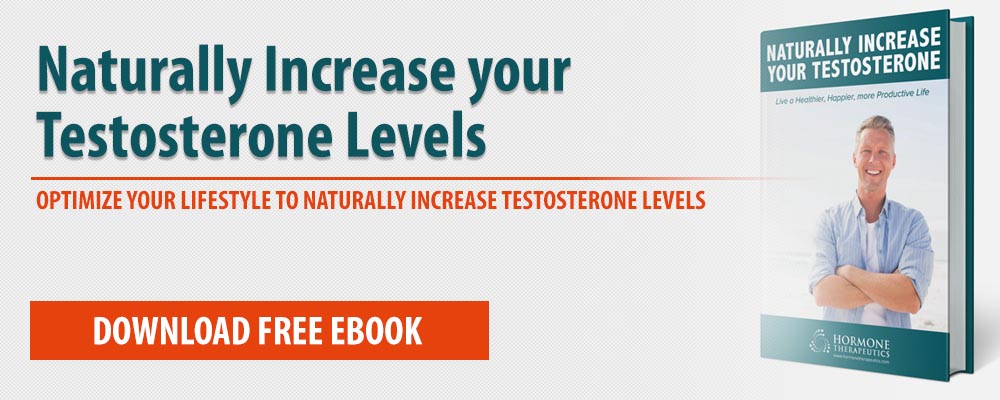
The Effect of HCG Therapy with Testosterone in Preserving Fertility, Libido and Testicle Size
Saleamp Design January 10th, 2017
Posted In: Hormone Replacement
Tags: HCG, HCG therapy, Human Chorionic Gonadotropin, intratesticular testosterone, libido, Luteinizing Hormone, testes, testicular shrinkage, testosterone, testosterone replacement
How does Testosterone Affect Sexual Health?
Can testosterone improve sexual health?
Many factors fuel the sexual health of men as well as their sexual performance, ability to perform and changes in their ability to function as they once could. Low testosterone plays a significant factor in all of these and treating Low T can improve interest in sex, sexual function and sexual performance.
The Effects of Low T on Sexual Health
While we do understand that testosterone production comes from a healthy HPA Axis, or communication between your Hypothalamus, Pituitary Glands, Adrenals and Testicles, science still does not understand exactly how testosterone improves sexual health or performance. As you probably noticed in High School, College or amongst your friends, there is no normal level of sexual interest amongst men or women.
Like your testosterone levels, it peaks around 19 and usually slowly declines for the rest of your life. Each person takes a different path, however, and declining sexual interest is typically tied to declining testosterone levels. These levels can follow a steady decline, or can be accelerated by health issues, stress, poor sleep and even by keeping sexually active. Many men can lose sexual interest at normal testosterone levels or maintain sexual health even at low testosterone levels but as testosterone levels get depleted it will universally effect sexual interest and performance.
One study of Men in the NE of the US showed 11% of men had a lack of sex drive. The researchers also found 28% of men with low testosterone levels had a low libido which means that men with low testosterone levels were 256% more likely to have low sex drive or low libido. The average age of the study participants was 47.
Low Testosterone and Erectile Dysfunction

Erectile Dysfunction, or ED, can be caused by many health problems including low testosterone, atherosclerosis (hardening of the arteries), diabetes, high blood pressure and high cholesterol. Those last three items all cause hardening of the arteries. If they are damaged, the penis has difficulty dilating and bringing sufficient blood flow required for an erection. Testosterone therapy can lead to increased libido and interaction and connection between the brain and penis.
Viagra is an example of an oral PDE5 inhibitors that encourage an increase in nitric oxide which dilates the blood vessels and encourages more blood flow to the penis. Three potent selective PDE5 inhibitors (sildenafil (Viagra; Pfizer), tadalafil (Cialis; Lilly), and vardenafil (Levitra; Bayer)) are currently available. Testosterone therapy will often increase the libido and sexual function to erase Erectile Dysfunction, but often our physicians will prescribe a combination with PDE5 inhibitors as well.
Studies are showing that men with classic hypogonadism, or low testosterone, have a reduced response to PDE5 inhibitors and see a significant response improvement with Testosterone Therapy. For patients who fail to see ED improvement following TRT and PDE5 inhibitors we can prescribe and test the direct injectable Trimix.
The Connection of Testosterone Levels and Sexual Health
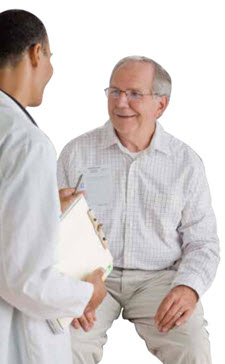 While this sounds like a juvenile sex joke, we are now seeing that lowered testosterone levels lead to a decreased sex life, but that a decreased sex life also can lower ones testosterone levels in a study at the University of Sydney in Australia.
While this sounds like a juvenile sex joke, we are now seeing that lowered testosterone levels lead to a decreased sex life, but that a decreased sex life also can lower ones testosterone levels in a study at the University of Sydney in Australia.
Researchers followed 1,700 men over the age of 70. The study asked questions and measured a number of things. The study tracked the ability to keep and maintain an erection. It measured the frequency that sexual activity led to ejaculation (through masturbation or sexual intercourse). The study also tracked libido and sexual health versus earlier times in their lives.
During the study, all of the men had blood tests regularly taken and the following tests measured: Total Testosterone, Free Testosterone, Estrogen, SHGB and some other hormones.
Researchers discovered a 10% reduction in testosterone levels led to a noticeable decrease in sexual activity but no change in the number of erections. Another study showed that testosterone levels increased on night after sexual activity without any increase on nights where there was no sexual activity. Physicians are concerned that a lack of sexual activity can accelerate low testosterone.
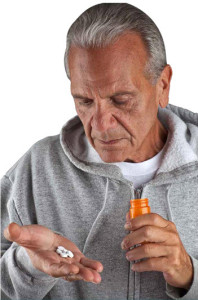 A further study showed that men taking Cialis had higher testosterone levels than men taking Viagra. Both drugs are PDE5 inhibitors to boost nitric oxide and blood flow to the penis. Cialis, however, last 36 hours for most people rather than 6-8 hours. Cialis users typically have more intercourse over this extended time period.
A further study showed that men taking Cialis had higher testosterone levels than men taking Viagra. Both drugs are PDE5 inhibitors to boost nitric oxide and blood flow to the penis. Cialis, however, last 36 hours for most people rather than 6-8 hours. Cialis users typically have more intercourse over this extended time period.
The researchers concluded that “as it is unlikely that the two drugs have a different direct effect on the pituitary-testis axis, this effect is probably due to the higher frequency of full sexual intercourse.”
A Chinese study observed a group of men that abstained from ejaculation for one week and had their testosterone levels tested each day. Research showed that abstaining for 6 days had no effect on testosterone levels, however, on the seventh day the testosterone levels surged to 145.7% of the baseline then plummeted on the 8th day.
The researchers believe the testosterone surge was the result of a negative feedback suppression of Luteinizing hormone (LH secretion) which is essential for testosterone production.
Hormone Therapeutics aims to help people looking to improve and optimize their health through natural means or through the guidance of our physicians.
Don’t miss out our free weekly tips and news on Low T, hormone balancing, healthy living, nutrition and a lot more.
Want more?

Sign up today and Get our ebook, ‘Naturally Increase Your Testosterone Levels’ absolutely FREE.
How does Testosterone Affect Sexual Health?
Saleamp Design November 15th, 2016
Posted In: Low T Info
Tags: atherosclerosis, Bayer, blood flow, boner, Cialis, diabetes, dilates, ED, erectile dysfunction, erection, high blood pressure, high cholesterol, hypogonadism, inhibitors, intercourse, Levitra, LH, LH secretion, libido, Lilly, Lutenizing hormone, nitric oxide, PDE5, PDE5 inhibitors, penis, Pfizer, pituitary, sex drive, sexual health, sexual performance, sildenafil, tadalafil, testes, testicles, testosterone level, testosterone therapy, trimix, TRT, vardenafil, Viagra
Here’s What You Should Know on How Testosterone Replacement Therapy Works
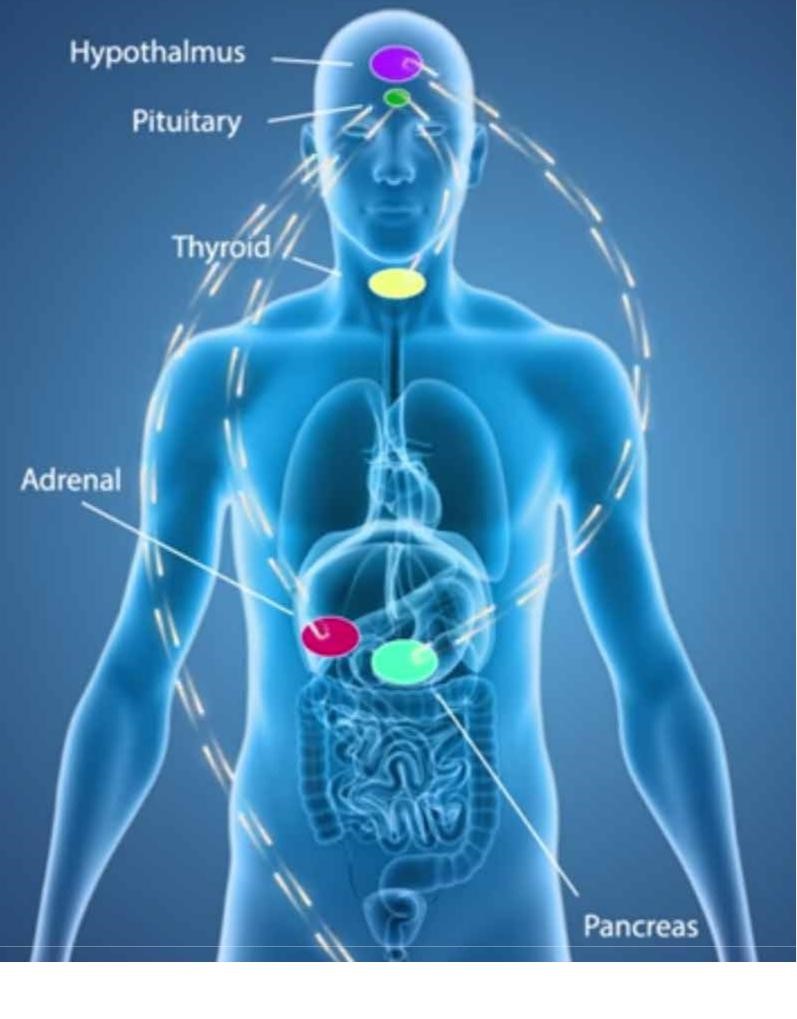 If you’ve been reading Hormone Therapeutics blogs and testosterone replacement therapy eBooks, you’re probably already completely aware of just how important testosterone is to male health. It boosts mental energy, physical energy, alertness, strength, sexual vitality, and just generally helps us live our lives better.
If you’ve been reading Hormone Therapeutics blogs and testosterone replacement therapy eBooks, you’re probably already completely aware of just how important testosterone is to male health. It boosts mental energy, physical energy, alertness, strength, sexual vitality, and just generally helps us live our lives better.
You might be wondering just how exactly it provides all these benefits, though. What’s the actual mechanism? What, precisely, does testosterone do?
The fact is, testosterone does all sorts of beneficial things in just about every part of the body. It’s a key hormone to maintaining our body systems, especially in men. Women actually also have small amounts of testosterone, but their bodies rely more on estrogen.
The importance of living with a fully functioning endocrine system has only really mattered this much in the past century as people are living longer due to improved medicine, sanitation and many other factors. 100 years ago the average life span was 48 and today it is 78 years. Many areas of the body do not hold up over time as well as others and require assistance like eye glasses, hearing aids or Lipitor. The same is true with balancing and optimizing the endocrine system through testosterone replacement therapy.
We now understand that a properly balanced endocrine system leads not just to the vanity aspects of it’s benefits but a healthier, happier, more effective and longer life.
Testosterone Replacement Therapy – How It Works
So to satisfy your scientific curiosity, here’s a high-level rundown of what testosterone does in men, across each main part of the body.
 The Endocrine System
The Endocrine System
The endocrine system is where our bodies produce hormones. It’s a series of glands distributed around various parts of the body that, as a whole, keep our hormone levels at their proper levels.
Testosterone is a hormone, so it’s also produced by the endocrine system. The process starts in the brain at the hypothalamus. The hypothalamus tells the pituitary gland what the body’s overall level of testosterone should be. The pituitary gland then directs the testicles and, to a lesser extent, the adrenal glands to actually produce the stuff. This is called the HPA axis.
This is where Testosterone levels can be thrown off. Typically, hypogonadism is to blame for low testosterone levels, and can cause a multitude of health problems. Although it’s normal for testosterone production to peak at 19 and drop gradually over time, about 1% per year after age 30, for some people it can fall too fast. In those cases, testosterone replacement therapy is indicated.
 The Reproductive System
The Reproductive System
Testosterone production starts in male children surprisingly soon after conception. A seven-week old fetus has already developed enough to begin producing the hormone, as well as sperm.
If testosterone levels are too low later in life, a man can suffer from erectile dysfunction, low sperm count, and even prostate problems. Its bad news, and it’s why testosterone replacement therapy is so important under the right circumstances for men in need of hormone balancing and testosterone supplementation.
 Puberty
Puberty
Testosterone is responsible for male puberty, as well. It’s the reason we start growing hair in new places, our voice (and other things) drop, and our muscles start to develop.
When boys start to notice girls, that’s the work of testosterone, and it carries through later in life. Low testosterone levels can impact our libido, and it’s actually a two-way street. Periods of minimal sexual activity can actually cause testosterone levels to drop in response, which can cause erectile dysfunction and lowered libido. It’s a snake that eats itself, and it’s best avoided.
 The Central Nervous System
The Central Nervous System
The central nervous system is how our body communicates with itself. It’s a network that lets glands and organs communicate to trigger production of hormones, among other things. Hormones, including testosterone, have all kinds of effects on the body and mind. Testosterone drives our competitiveness and self-esteem.
That means lowered testosterone levels can make us lose our motivation and spark. It can literally make us sad. Like sexual desire, it’s a two-way street. Engaging in competitive activities like sports can spike our testosterone, which in turn makes us more motivated to strive for success. Lowered testosterone can make us lose our motivation, and sitting around can further lower the testosterone levels.
 Skin and Hair
Skin and Hair
It starts at puberty. Hair starts growing in new and disturbing places. Pretty soon, we’ve got manly, hairy chests and armpits, as well as hair on points further south.
Testosterone is responsible for that, and lowered testosterone levels can have the opposite effect. Our body hair might actually start to fall out if testosterone gets too low!
The other thing about puberty, acne, is also an effect of testosterone. For that reason, you might need to stock up on some acne cream or gel when you’re undergoing testosterone replacement therapy. It’s a small price to pay for the benefits you’ll receive.
 Muscles, Fat, and the Skeleton
Muscles, Fat, and the Skeleton
Testosterone is a major factor in the development of our muscles, both size and strength. Testosterone levels work to improve our muscles in a few different ways.
- It stimulates neurotransmitter production, which in turn tell our muscles to grow.
- It tells the nuclear receptors in our DNA to synthesize protection.
- It increases growth hormone levels
What that means overall is that testosterone makes strength training more effective. If you’re been hitting the weights and not seeing much gain, low testosterone levels might be to blame. The male hormone is also important to our skeleton. It increases bone density, and it’s what makes our bone marrow manufacture red blood cells. If you have low testosterone production, you might actually become more brittle and prone to fractures.
Finally, testosterone is important to burning fat, and low levels can be responsible for a higher body fat percentage.
Overall, testosterone levels are vital to your physical health.
 The Circulatory System
The Circulatory System
Finally, testosterone is crucial to the health of our blood. As mentioned, it improves our red blood cell count, which is a positive because it carries more oxygen throughout our body. However, a physician needs to monitor and manage red blood cell and hematocrit levels to ensure blood does not get too viscous.
Some studies have shown that testosterone replacement therapy can also make our hearts healthier. These studies suggest that the hormone is effective in reducing cholesterol and blood pressure. It can even help destroy harmful clots.
Although testosterone replacement therapy shouldn’t be undergone lightly and without the advice of a medical professional, its benefits are becoming more and more apparent. If any of the symptoms and problems mentioned in this article ring a bell for you, get in touch with a doctor today.
Hormone Therapeutics aims to help people looking to improve and optimize their health through natural means or through the guidance of our physicians.
Don’t miss out our free weekly tips and news on Low T, hormone balancing, healthy living, nutrition and a lot more.
Want more?

Sign up today and Get our ebook, ‘Naturally Increase Your Testosterone Levels’ absolutely FREE.
Here’s What You Should Know on How Testosterone Replacement Therapy Works
Saleamp Design October 18th, 2016
Posted In: Testosterone Therapy
Tags: adrenal, Andropause, cognitive, endocrine system, energy, fatigue, gonads, growth hormone, hair, HPA axis, hypogonadism, hypothalamus, libido, mental, muscles, pituitary, puberty, reproductive system, sex, skin, sperm, strength, testes, testosterone, testosterone levels, testosterone production, Testosterone replacement therapy, vitality



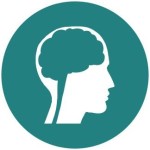 The Endocrine System
The Endocrine System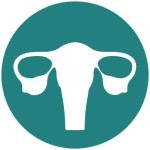 The Reproductive System
The Reproductive System Puberty
Puberty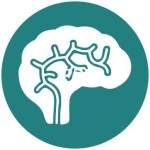 The Central Nervous System
The Central Nervous System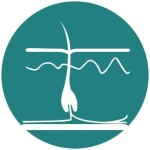 Skin and Hair
Skin and Hair Muscles, Fat, and the Skeleton
Muscles, Fat, and the Skeleton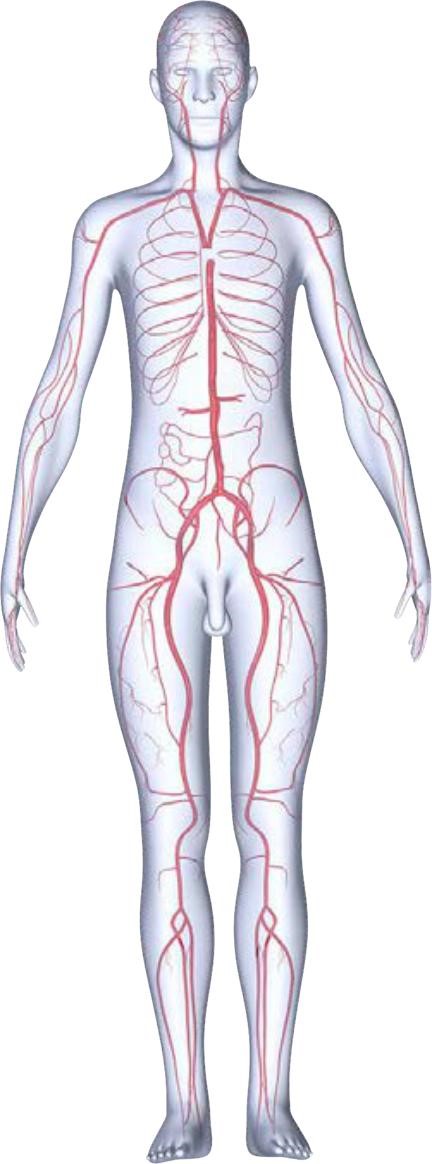 The Circulatory System
The Circulatory System